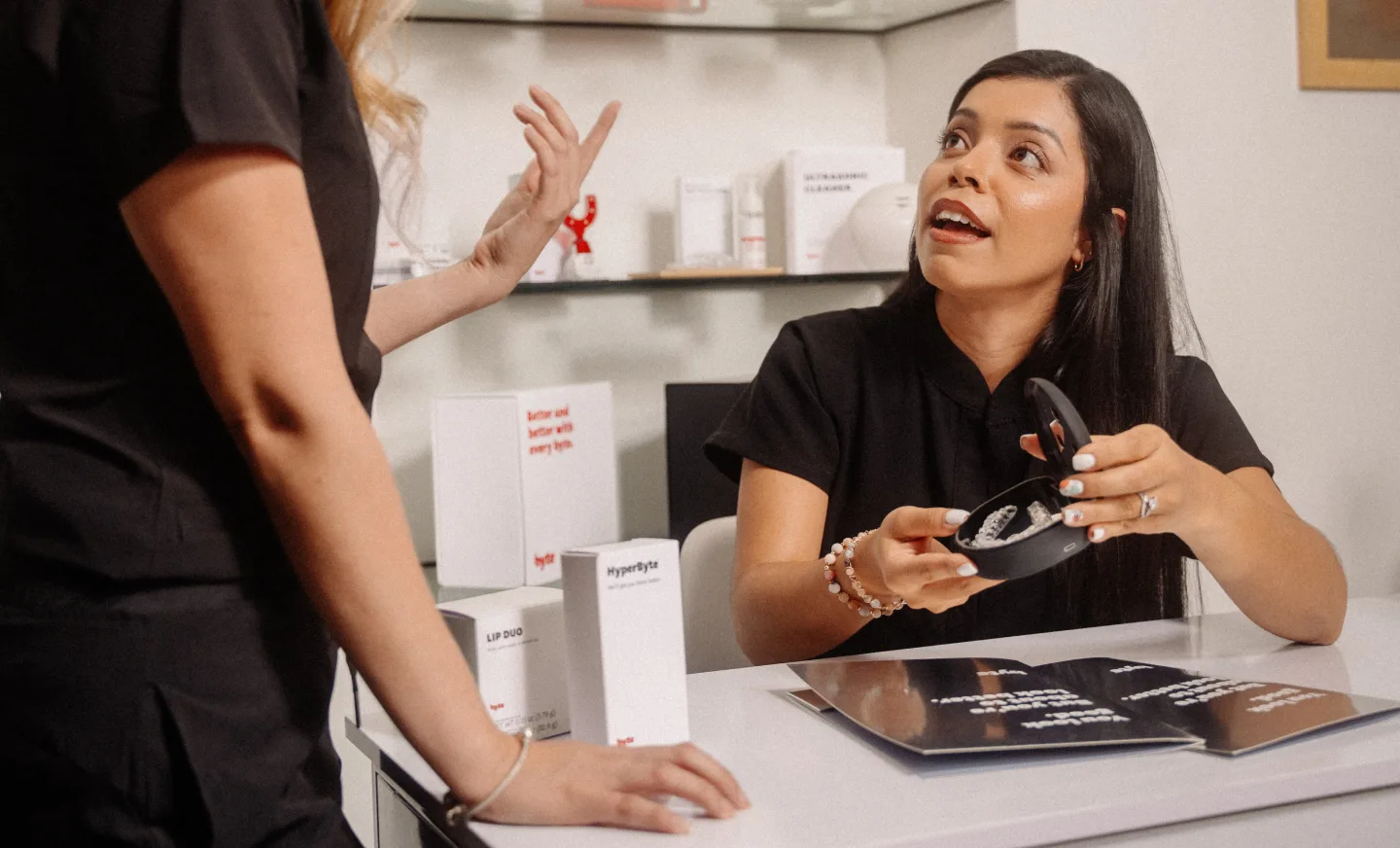


ALIGN WITH CONFIDENCE
Things you should know about orthodontic treatment [v3]

Things you should know about orthodontic treatment
Indications for use
The Byte Aligner System is indicated for the treatment of tooth malocclusion in patients with permanent dentition (i.e., all second molars). The Byte Aligner System positions teeth by way of continuous gentle force.
Contraindications
Byte® System is contraindicated for use in adult and adolescent patients presenting the following conditions
Active periodontal disease
Severe open bite
Severe overjet
Tooth malocclusion requiring surgical correction
Patients with mixed dentition
Adolescent patients with a skeletally narrow jaw
Patients with dental prosthetics/implants
Warnings
In rare instances, some patients may be allergic to the plastic aligner material. In such cases, discontinue use and consult a health care professional immediately. Byte® must also be notified.
Orthodontic appliances, or parts thereof, may be accidentally swallowed or aspirated and may be harmful.
Report serious incidents that have occurred in relation to the device to the manufacturer and to the applicable regulatory agency in the country where the event occurred.
Precautions
Certain medical conditions and use of certain medications may affect orthodontic treatment outcomes.
Regular dental checkups and cleanings are recommended for the continued health of teeth and gums.
Not brushing and flossing your teeth properly during treatment may lead to tooth decay, periodontal disease, and permanent markings from stains and decalcification.
Keep aligners away from hot water and harsh chemicals.
Keep aligners out of reach of young children and pets.
Always store aligners in a cool, dry place and in the provided carrying case. Don't wrap aligners in a napkin or paper towel.
Protect aligners from the sun, hot cars, or excessive heat.
Clean aligners before putting them in each time.
Brush and floss teeth before putting aligners in.
Use cold or warm water when cleaning or rinsing aligners.
Use a soft bristle toothbrush to get a more thorough clean. Rinse with water after cleaning.
Don't use sharp objects to remove aligners.
Don't soak aligners in mouthwash or certain denture cleaners since this can damage or discolor them.
Don't wear aligners while eating or drinking anything other than cool water.
Don't bite aligners into position. This can damage aligners and teeth.
Failure to wear the aligners for the recommended amount of time and/or not using the product as directed by these instructions and your doctor can lengthen treatment time and affect the ability to achieve desired results.
See Customer Consent for more information.
Byte Tabs

Doctor directed
Your treatment plan is reviewed and prescribed by a dentist.
Your clinical team is available to help monitor your progress.
HyperByte
Exclusively from Byte
HyperByte is included with each treatment plan. This high-frequency vibration device may help lessen discomfort, accelerate minor front tooth movement, and properly seat aligners.*